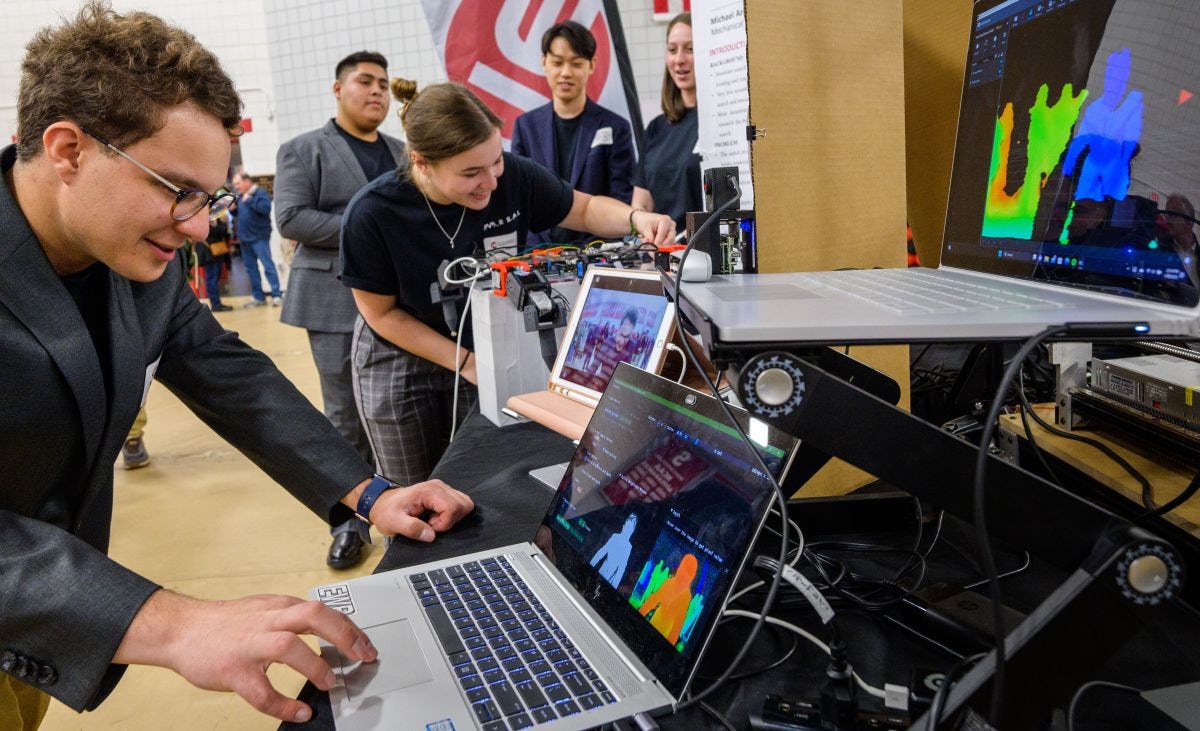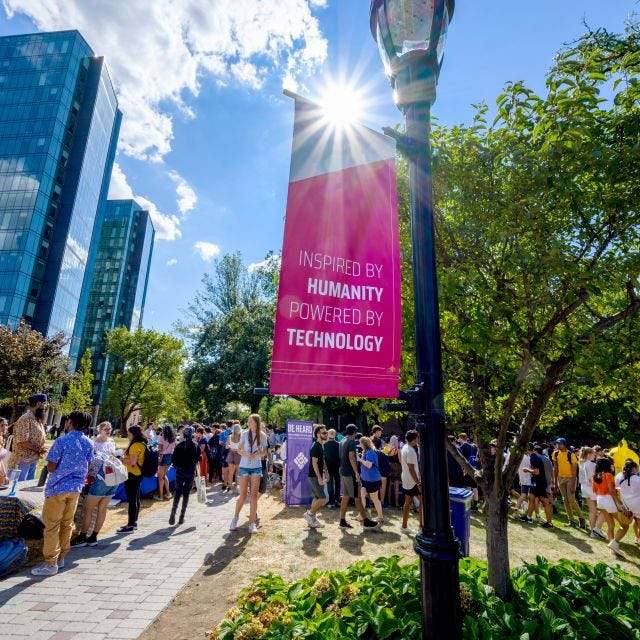
Ph.D. in Computer Science
Prepare to make an enduring impact in fields like machine learning, artificial intelligence and cybersecurity with a Ph.D. in computer science from Stevens.
All Stevens computer science doctoral students receive financial support, which allows them to dive into vigorous research right away. You’ll work under the guidance of expert faculty, including the inventor of a landmark algorithm for computer graphics, a collaborator in three major software advances, multiple NSF CAREER Award recipients and cybersecurity industry leaders. Our graduates go on to impressive career paths in academia, corporations, government agencies and financial institutions.
The Department of Computer Science offers dynamic opportunities to explore leading-edge research within a close community of faculty mentors. You'll be able to study under a faculty mentor in the area that you find most exciting:
AI and Machine Learning
Computer Vision
Big Data Analytics
Programming Languages
Computer Security and Cryptography
Software Systems
The Stevens Advantage: Widen Your Career Options
Stevens’ Hoboken, N.J., location enables lucrative collaborations and future employment opportunities at universities, corporations and agencies, including NYU, Columbia, Rutgers/DIMACS, AT&T Labs, Bell Labs and Google New York.
Learn more about what makes graduate education from Stevens a unique experience:
Graduate Cooperative Education Program: Available with two tracks, your co-op experience can serve as a starting point for a research project or augment your on-campus research with complimentary experience.
International Student Experience: Tap into our expanding worldwide network of research, academic and alumni partners and mentor with our expert faculty in a number of federally-designated STEM degree programs. Optional Practical Training (OPT) or Curricular Practical Training (CPT) is available to gain work experience in your major/field of study.
State-of-the-Art Research Labs and Facilities: Build, tinker and test your designs in Stevens' MakerCenter, Prototype and Object Fabrication Lab, or numerous other research facilities.
Research Opportunities: Renowned faculty, labs and research centers – as well as industry partnerships and funding from leading national agencies – support strategic and interdisciplinary research in engineering and science.
Assistantships and Fellowships: Stevens offers funding to select graduate students in the form of teaching assistantships, research assistantships and fellowships. Limited in number, these highly competitive opportunities are awarded to exceptional candidates based on merit.
Expanded Learning Options: The Schaefer School offers new opportunities for doctoral students to do coursework at universities in the New York City area – and around the world – through our growing list of academic partnerships with other prestigious universities. Learn more about our latest partnerships.
Computer Science Research
The computer science department at Stevens offers you a maximum amount of flexibility to pursue research opportunities in cutting-edge, competitive areas of exploration like secure systems, machine learning, cryptography and visual computing. You’ll work with recognized leaders in the field, gain exposure to top industry labs and learn sought-after principles that will help propel your career. Learn more about research in the Department of Computer Science.
Program Admission Requirements
Who Should Apply?
We welcome applicants with a love of hacking and a drive to innovate.
Ideal candidates hold a master’s degree in computer science (up to 30 credits may transfer to Stevens’ Ph.D. program). Exceptionally well-qualified applicants with a bachelor’s degree in computer science may be considered for the Ph.D. program.
Requirements
Bachelor’s degree, with a minimum GPA of 3.0, from an accredited institution
Transcripts from all post-secondary institutions attended
Two letters of recommendation (academic or professional only; Select Ph.D. programs require a third letter of recommendation)
Statement of Purpose
$60 non-refundable Application Fee
Proof of English language proficiency
A competitive GRE or GMAT score (optional)
Resume/CV
Writing sample(s). All applicants are encouraged to submit a lab report (preferable) or paper that they wrote, individually, for an engineering course. Applicants who have published a journal article are also encouraged to submit a copy of their article.
For more complete details, visit our General Admissions Requirements page.
Curriculum Overview
View objectives, outcomes, and other Ph.D. curriculum details in the most recent academic catalog.
View Academic Catalog >
Each Ph.D. curriculum must also adhere to the institution wide standards listed in the doctoral handbook.
View Doctoral Handbook >
If you have existing graduate credits or experience in this area of study, contact [email protected] to discuss opportunities to include it in the curriculum.
Fellowships & Assistantships
Information about assistantships and fellowships can be found here.
STEM Designated Degree Programs
The four fields comprising STEM – science, technology, engineering and mathematics – offer a wide variety of professions that are classified as some of the highest-growing and highest-paying jobs right now and in the future.
And for international students, the demand for STEM-related professionals in the United States can open the door for an extended stay.
An ever-growing list of eligible programs across all levels is available here.
A Tech Forward Education
Computer Science Ph.D. Facts and Statistics
Related Programs
Ph.D. in Data Science
Gain in-demand skills in emerging areas like artificial intelligence, machine learning and language processing in a Ph.D. program designed with input from industry leaders.
Ph.D. in Computer Engineering | Stevens Institute of Technology
Gain the in-demand computer engineering skills you need to lead in rapidly evolving fields like cybersecurity, the Internet of Things (IoT), machine learning, and artificial intelligence (AI).
Robotics Doctoral Program
Earn your robotics Ph.D. and gain in-demand skills that can make a global impact while learning from top robotics experts.




